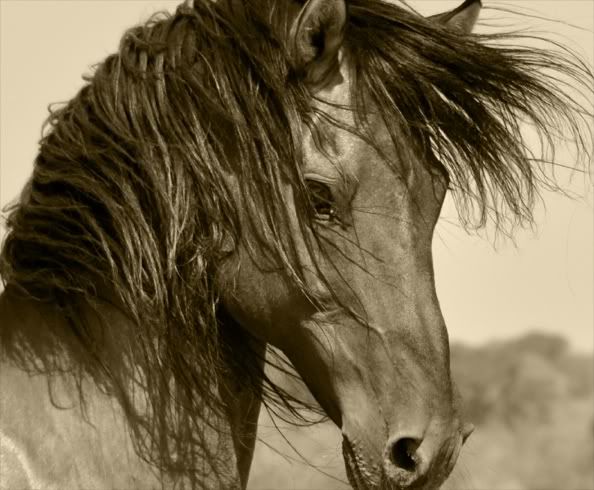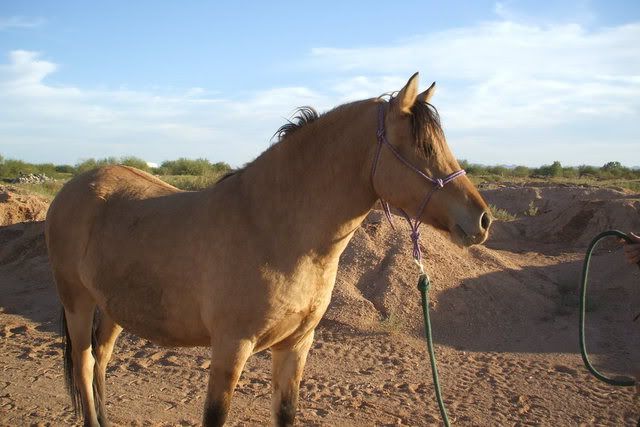Post by Michelle Clarke on Mar 6, 2008 21:27:06 GMT -5
I thought this was a timely subject with foaling season upon us....I know this may be a touchy subject and has potential to get heated, but maybe we can all learn something.
There was an article in the latest Horses for Life in regards to new findings about foal imprinting. This was not done by any dingdongs - the study was done in France and published in Developmental Psychobiology and the Journal of Comparative Psychology.
Seems as if Imprinting may actually stress the foal....what a surprise!
Some of the findings:
"...reveal that foals handled by humans during the first hours following birth remained closer to their dams and appeared to be more cautious about approaching humans at several weeks and months of age than foals in a control group that had not been handled.
Human-handled foals were also less social with other foals and less likely to explore their surroundings or separate from their mothers, even at six months of age, Henry said.
By contrast, foals that had not been handled directly, but had witnessed gentle human handling of their dams, were more likely to trust humans, the studies showed.
"What we have discovered is that everything that the foals experience very, very young is something that is then fixed into their memory over the long term," Henry said. "It's evident that we're dealing with a period which is very important for their (behavioral) development."
Henry explained that because horses show affection differently from humans and other domestic animals, using less physical interaction, the early human contact is unnatural and could be perceived as negative.
"It seems that the best way to establish confidence with a new foal is through good contact with its mother," said Henry. "Clearly, to create a positive horse-human relationship, it's not a good idea to intervene in the natural progression of postnatal events, nor in the early mare/foal relationship."
The article also talked about the effects on the mare and the stress causing them to get worse over the years about being protective of thier foals. Mares that had always been good, now getting overly anxious. That can't be good for the foals either!
I know Texas A&M also did a study years ago and raised foals - some imprinted, some not and kept them until they were under saddle. They found NO difference in these horses as adults.
I did study with Robert Miller himself years and years ago and practiced imprinting. However, seeing the problems I had and then the (monster) horses that came in for training that were imprinted, I stopped that pretty quick.
I have an article I wrote awhile ago on our site on why we don't imprint:
www.ranchobayo.com/imprinting.html
There was an article in the latest Horses for Life in regards to new findings about foal imprinting. This was not done by any dingdongs - the study was done in France and published in Developmental Psychobiology and the Journal of Comparative Psychology.
Seems as if Imprinting may actually stress the foal....what a surprise!
Some of the findings:
"...reveal that foals handled by humans during the first hours following birth remained closer to their dams and appeared to be more cautious about approaching humans at several weeks and months of age than foals in a control group that had not been handled.
Human-handled foals were also less social with other foals and less likely to explore their surroundings or separate from their mothers, even at six months of age, Henry said.
By contrast, foals that had not been handled directly, but had witnessed gentle human handling of their dams, were more likely to trust humans, the studies showed.
"What we have discovered is that everything that the foals experience very, very young is something that is then fixed into their memory over the long term," Henry said. "It's evident that we're dealing with a period which is very important for their (behavioral) development."
Henry explained that because horses show affection differently from humans and other domestic animals, using less physical interaction, the early human contact is unnatural and could be perceived as negative.
"It seems that the best way to establish confidence with a new foal is through good contact with its mother," said Henry. "Clearly, to create a positive horse-human relationship, it's not a good idea to intervene in the natural progression of postnatal events, nor in the early mare/foal relationship."
The article also talked about the effects on the mare and the stress causing them to get worse over the years about being protective of thier foals. Mares that had always been good, now getting overly anxious. That can't be good for the foals either!
I know Texas A&M also did a study years ago and raised foals - some imprinted, some not and kept them until they were under saddle. They found NO difference in these horses as adults.
I did study with Robert Miller himself years and years ago and practiced imprinting. However, seeing the problems I had and then the (monster) horses that came in for training that were imprinted, I stopped that pretty quick.
I have an article I wrote awhile ago on our site on why we don't imprint:
www.ranchobayo.com/imprinting.html





